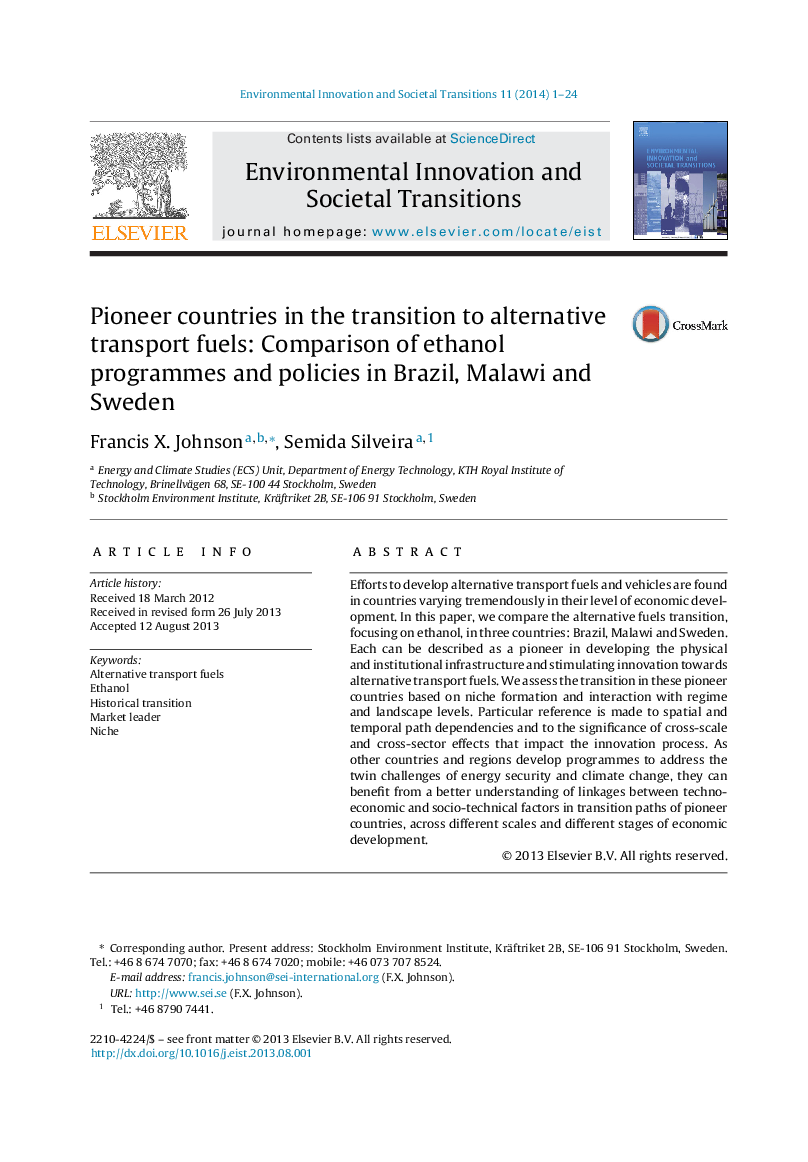| Article ID | Journal | Published Year | Pages | File Type |
|---|---|---|---|---|
| 108223 | Environmental Innovation and Societal Transitions | 2014 | 24 Pages |
•Brazil, Malawi and Sweden are viewed as pioneer countries in transition to alternative transport fuels.•Market and technological niches facilitated deployment and faster uptake.•Strong policy coordination across sectors and scales is needed to develop biofuels markets.•Oil-importing developing countries have strong economic motivations.•Transition could become drawn out if multiple infrastructures are needed.
Efforts to develop alternative transport fuels and vehicles are found in countries varying tremendously in their level of economic development. In this paper, we compare the alternative fuels transition, focusing on ethanol, in three countries: Brazil, Malawi and Sweden. Each can be described as a pioneer in developing the physical and institutional infrastructure and stimulating innovation towards alternative transport fuels. We assess the transition in these pioneer countries based on niche formation and interaction with regime and landscape levels. Particular reference is made to spatial and temporal path dependencies and to the significance of cross-scale and cross-sector effects that impact the innovation process. As other countries and regions develop programmes to address the twin challenges of energy security and climate change, they can benefit from a better understanding of linkages between techno-economic and socio-technical factors in transition paths of pioneer countries, across different scales and different stages of economic development.
